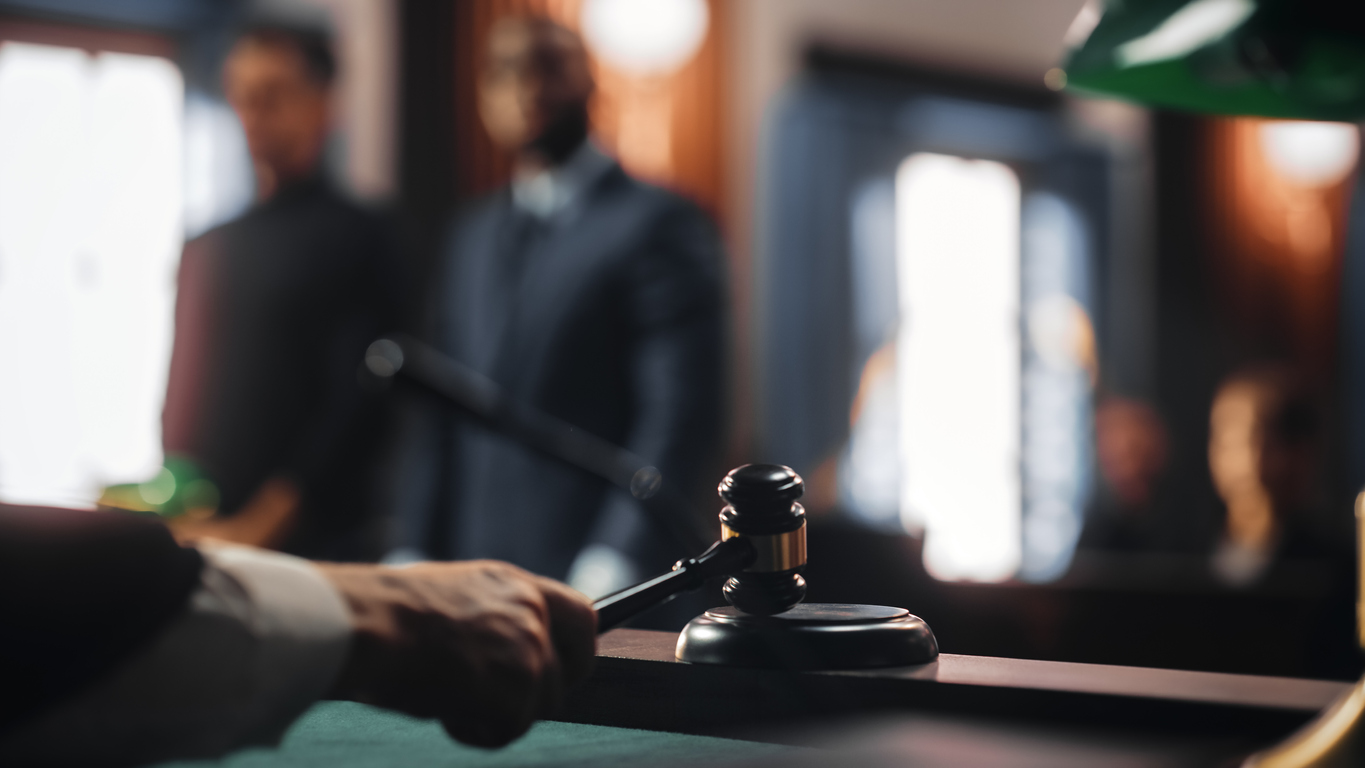November 27, 2023 | Criminal Law

If you’re facing a criminal charge, understanding the trial process in Kentucky is crucial. It empowers you to defend yourself effectively and ensures your rights are upheld.
Here’s an easy-to-follow breakdown of the criminal trial steps, from the moment an allegation is made to the conclusion of the trial. This guide aims to clarify each stage, providing you with the knowledge needed to navigate the legal system confidently.
Arrest and Charging
The process of arrest and charging in a criminal case usually starts in one of two ways:
- Reporting the Crime: A police officer or someone who saw the crime (a witness) tells the County Attorney (who is the prosecutor) about the crime.
- Review by County Attorney: The County Attorney looks at all the information and evidence available. Based on this, they decide whether to file charges against the person accused of the crime.
Sometimes, the County Attorney might think there isn’t enough evidence to prove the crime in court, or they might have concerns that some evidence can’t be used at trial.
In these cases, they might choose not to file any charges, or they might ask the police to do more investigating. If the decision is to file charges, then a written complaint is made, and a date is set for the person to appear in court.
Initial Appearance and Arraignment
When someone first goes to court for a criminal charge, this is called an arraignment. This is what happens during an arraignment:
- Understanding the Charges and Rights: The person (defendant) is officially told what they’re accused of and is informed about their legal rights.
- Entering a Plea: The defendant then tells the court how they respond to the charges. They can say they’re guilty, guilty but mentally ill, or not guilty.
- Bail Discussion: The court also talks about bail, which is whether the defendant can be released before trial and under what conditions.
- Court Location: Depending on the severity of the charges, this arraignment could take place in either District Court or Circuit Court.
In some cases, the defendant might plead guilty at the arraignment in exchange for less severe charges or a lighter sentence.
Grand Jury & Indictment
The grand jury process is private, and only certain people are allowed to be there. This process also only applies to certain kinds of criminal charges. This includes the Judge, Prosecutor, grand jury members, and witnesses. Neither the defendant nor their lawyer can attend.
If the Prosecutor shows enough evidence to suggest the crime probably happened, the grand jury can issue an indictment, which is a formal accusation of the offense.
Trial Process: What Happens in Court
Before the trial itself, each side prepares for the upcoming proceedings and crafts its arguments. The pretrial discovery process will take place, as well as other procedures, such as hearings.
During the trial itself, each side (the prosecution and defense) presents its case. This includes selecting a jury, giving opening and closing statements, presenting evidence, and questioning witnesses. The prosecutor’s job is to prove the crime beyond a reasonable doubt. The defense attorney aims to show there’s enough doubt about the crime or prove the defendant didn’t do it. This happens in front of either a judge or jury.
Deciding the Punishment
After the trial ends (with a guilty verdict) or if the defendant pleads guilty, it’s time for sentencing. The Judge decides the punishment, which can range from programs like diversion to jail time. Before this, the defendant might meet with the Department of Probation and Parole for a presentencing interview. This helps the Judge make an informed decision on the sentence.
Challenging the Conviction
In Kentucky, if someone is convicted, they have the right to appeal. This means the case goes to a higher court for review. The higher court looks over the case to see if everything was done correctly in the trial.
Contact an Experienced Kentucky Criminal Defense Lawyer
If you’ve been arrested for a crime and are not sure what you should do next, we encourage you to contact us for a free case review. At that time, you can speak with a trusted criminal defense lawyer about your legal rights and options.
Suhre & Associates, LLC – Lexington
333 West Vine Street #212
Lexington, KY 40507
United States
